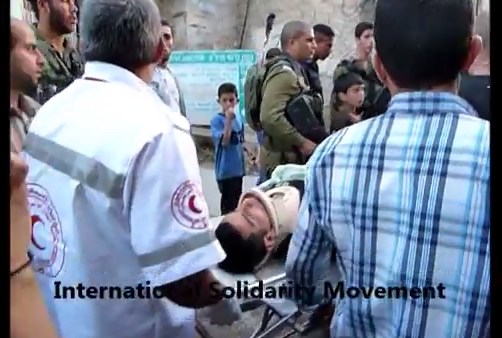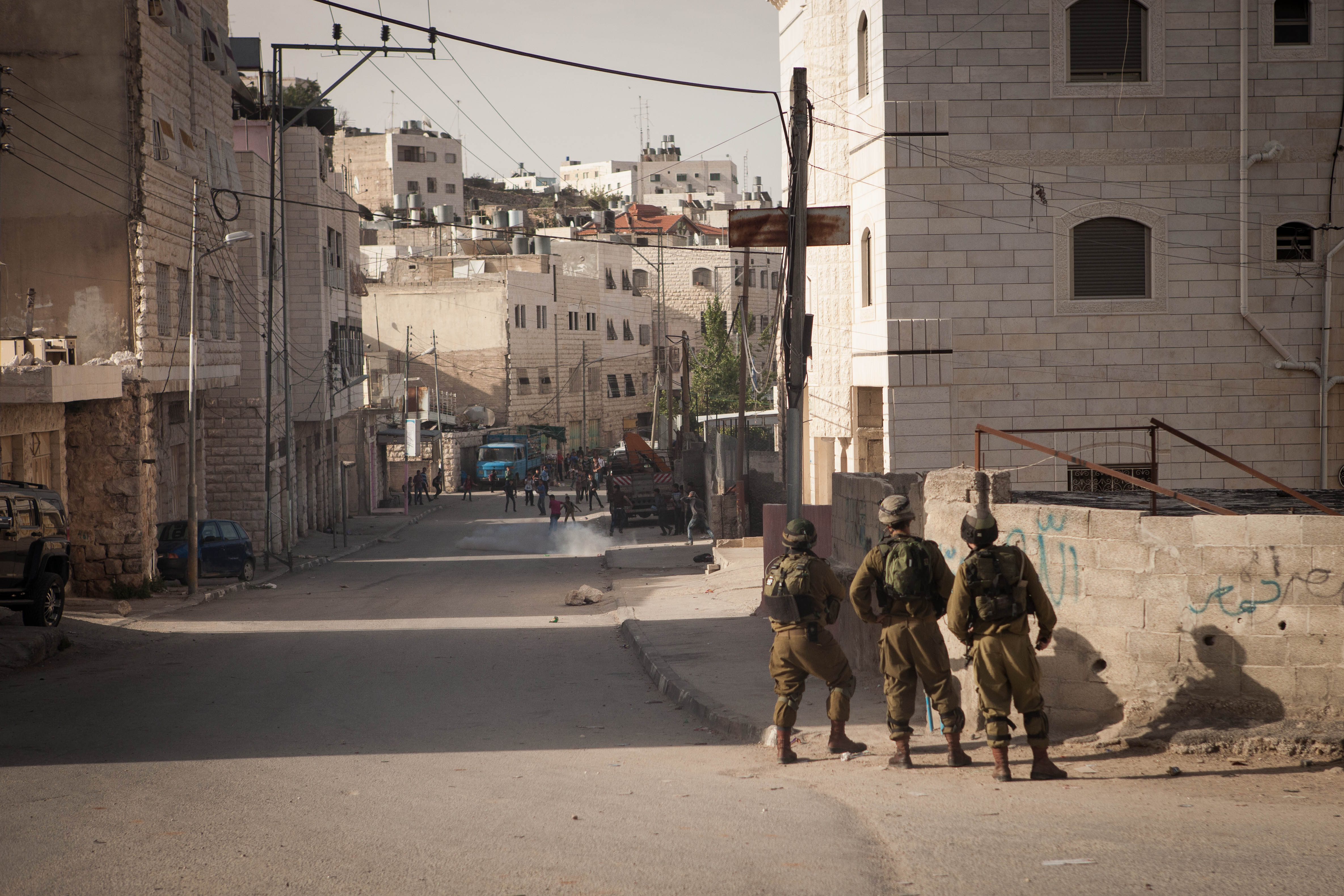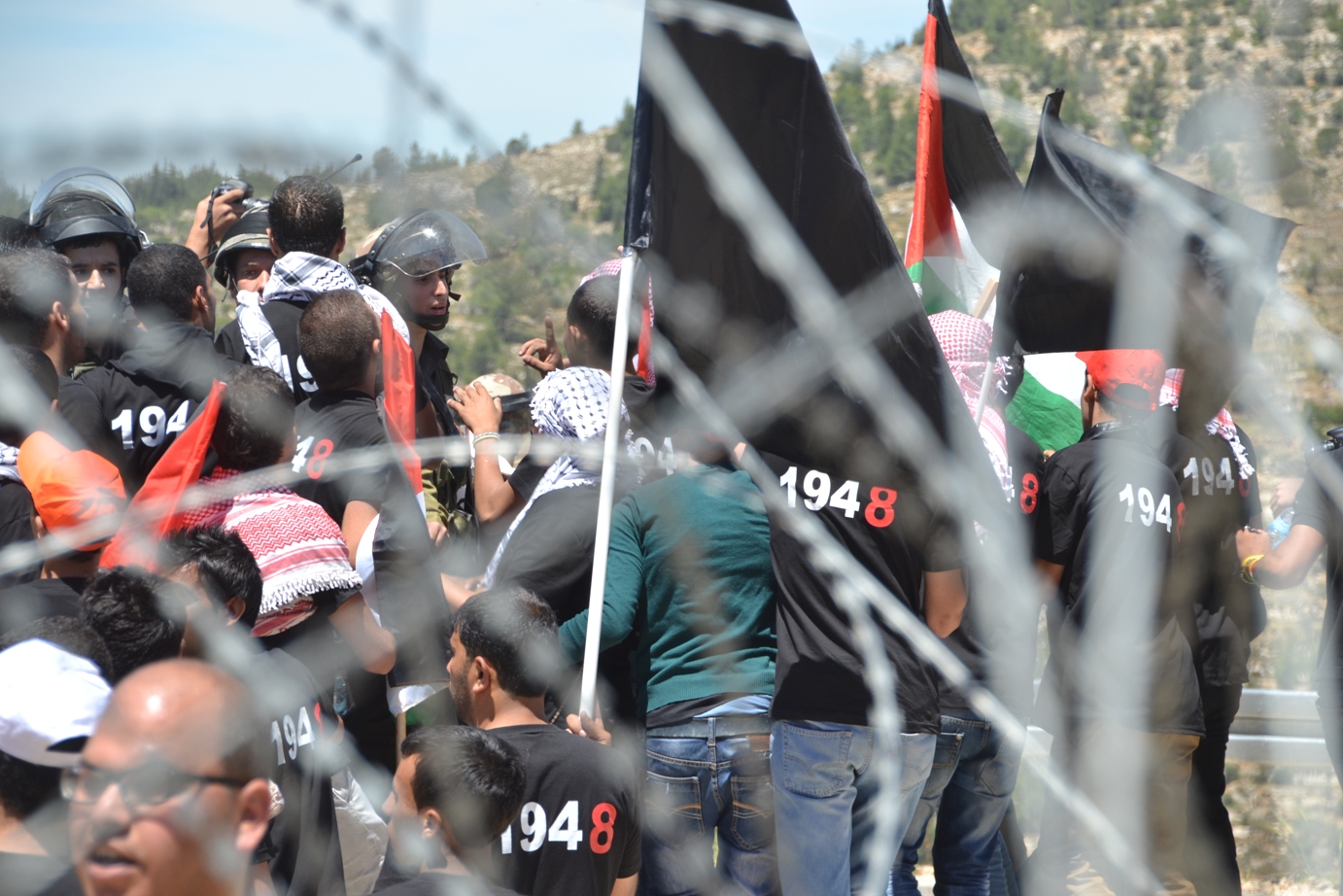Category: Reports
-
VIDEO: Settler runs over a 17-year-old Palestinian in Hebron
22nd May 2014 | International Solidarity Movement, Khalil team | Hebron, Occupied Palestine Yesterday during the early evening, several Palestinian youths were riding bikes near checkpoint 56 in the Tel Rumeida area of Al-Khalil (Hebron). At around 7pm, one youth, 17-year-old Izz Adel Bedo, from the Jabal Al-Takruri area of Hebron was knocked off his bike and…
-
VIDEO: Israeli forces fire tear gas and stun grenades at children in Hebron
21st May 2014 | International Solidarity Movement, Khalil team | Hebron, Occupied Palestine This morning in al-Khalil (Hebron), several children threw stones towards Checkpoint 29 on their way to school. At approximately 07:40, 13 Israeli soldiers and border police officers entered through the checkpoint and fired four tear gas grenades and four stun grenades at the children. The…
-
Nakba Day demonstration in Al Walaja: “Al Walaja is one of the symbols of the past and present displacement”
16th May 2014 | International Solidarity Movement, Nablus Team | Al Walaja, Occupied Palestine Yesterday 15th May, villages from Al Walaja marched for their right of return, on a day marking the 66th anniversary of the Nakba (catastrophe in Arabic). The demonstration was met with violent repression from Israeli forces with many tear gas canisters fired…



